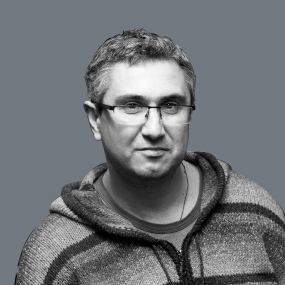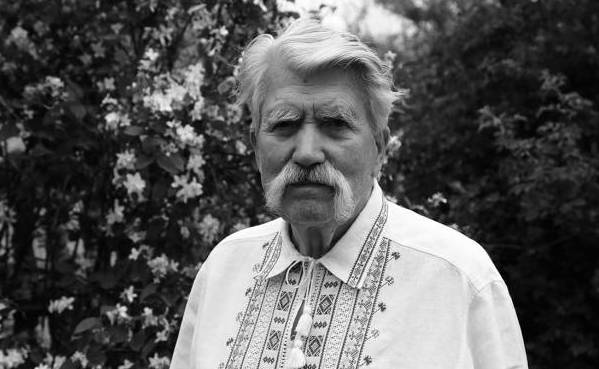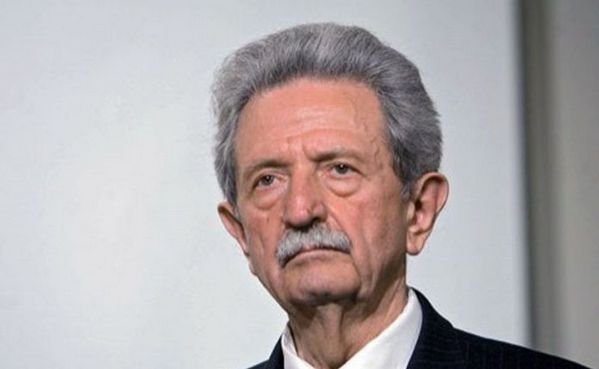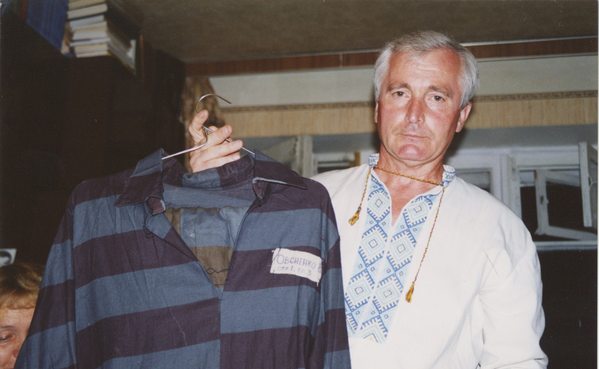Balys Gajauskas
Balys Gajauskas (b. 24 February 1926, Vigreliai village, Gražiškiai, Vilkaviškis District Municipality, Republic of Lithuania – d. 28 September 2017, Vilnius, Republic of Lithuania).
Lithuanian political prisoner, public and political figure, the Seimas of the Republic of Lithuania deputy.
Born in the independent Republic of Lithuania, Balys Gajauskas took an active part in the resistance movement against the Soviet occupation after World War II. While working in Kaunas in his youth, he distributed leaflets, performed tasks for the resistance fighters, and wrote for a local underground newspaper. In April 1948, he was arrested with weapons and anti-Soviet literature for connections with the "forest brothers", and sentenced to 25 years.
He served his term in a molybdenum mine in Balkhash (Kazakh SSR), then – in Zhezkazgan (Kazakh SSR), and, starting from 1956, in Mordovia. He learned a lot of foreign languages in camps, – in particular, major European ones, as well as Japanese, Korean, and Chinese. His first release took place in May 1973, and from then on he worked as a constructor and electrician in the city of Kaunas (Lithuanian SSR). At the time, he collected materials on repressions by the Soviet occupation government on the Luthuanian territory, and the local resistance movement, and took part in the founded in November 1976 Lithuaninan Helsinki Group activities.
In April 1977, he was arrested for the second time, for "anti-Soviet campaigning and propaganda", and sentenced to 10 years in maximum security penal colonies and five years in exile. For instance, he was charged with possession and distribution of the underground press, translating of A. Solzhenitsyn's novel "The Gulag Archipelago" into Lithuanian, helping Lithuanian political prisoners' families, and human rights activism. He served this sentence in "ЖХ-385/1-8" camp in Sosnovka settlement (Mordovia), where he married Irena Dumbrite; his wife helped him to channel his articles and political prisoners' documents, – including the Ukrainians', – outside. In 1983, he was awarded the International Peace and Freedom Prize for his active public position. Together with other prisoners from the mentioned camp, he was transferred to a maximum security section "ВС-389/36-1" in Kuchyno village in Perm region. Here, in 1983, Balys Gajauskas managed to channel outside his articles and his cellmate Vasul Stus's notes, known as "Camp Notebook".
While in camp, he took a principled stand, for which was punished by being held in a solitary cell, deprived of visitors and packages (having been denied seeing her son, his mother fell ill and died). In an attempt to stop Balys Gajauskas's vigorous activity, the KGB tried to inspire his murder. On 17 April 1986, Balys's inmate, a former criminal Borys Romashov, attacked him, stabbing the man with a screwdriver 12 times. The assaulter got off with 15 days in a solitary cell, and the injured was diagnosed with just "minor injuries". On 19 April 1987, after his imprisonment term had come to an end, he was sent to exile in Khabarovsk Krai, where he worked as a watchman at a fishing collective farm on the shores of the Sea of Okhotsk.
After pushful actions of the Lithuanian society in defence of political prisoners in July 1989, Balys Gajauskas was exonerated by a ruling of the Supreme Court of the Lithuanian SSR. In 1990, he was among the signatories of the Declaration of Independence of Lithuania Act. Between 1992 and 1996 he was the Seimas deputy, and a head of this body's commission that investigated the KGB activities on the territory of the Luthuanian SSR. He was an active participant of the social and political life of Lithuania: he engaged in the preparation for the print of the materials about the local partisan movement, the establishment of the Institute of National Memory, and was a member of the Council of the Museum of the History of Political Repression Perm-36. Balys Gajauskas lived and worked in Vilnius, but visited Ukraine often.
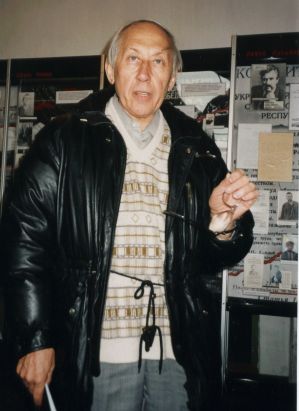
Повне інтерв'ю читайте у книзі "Дисиденти".


